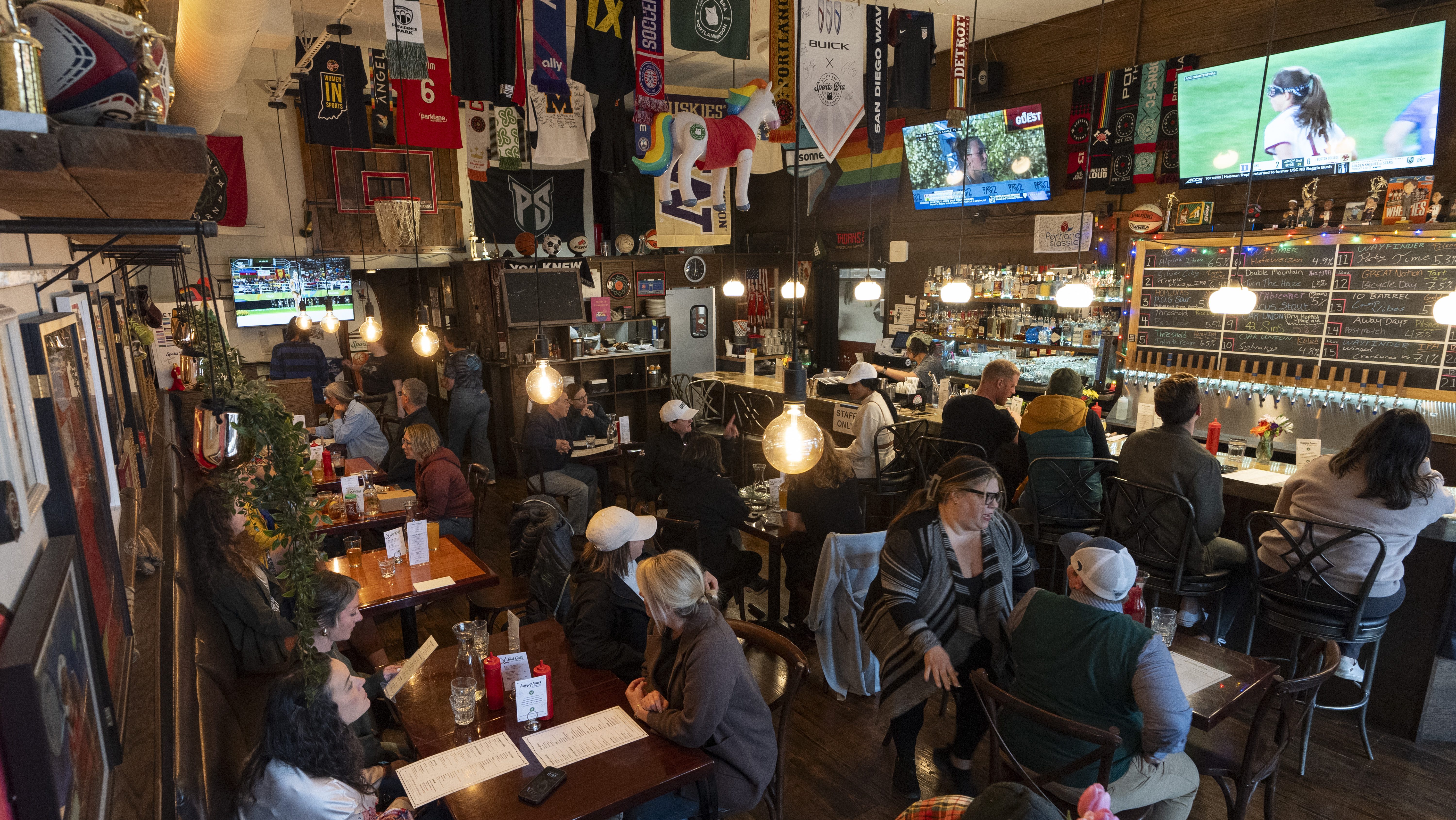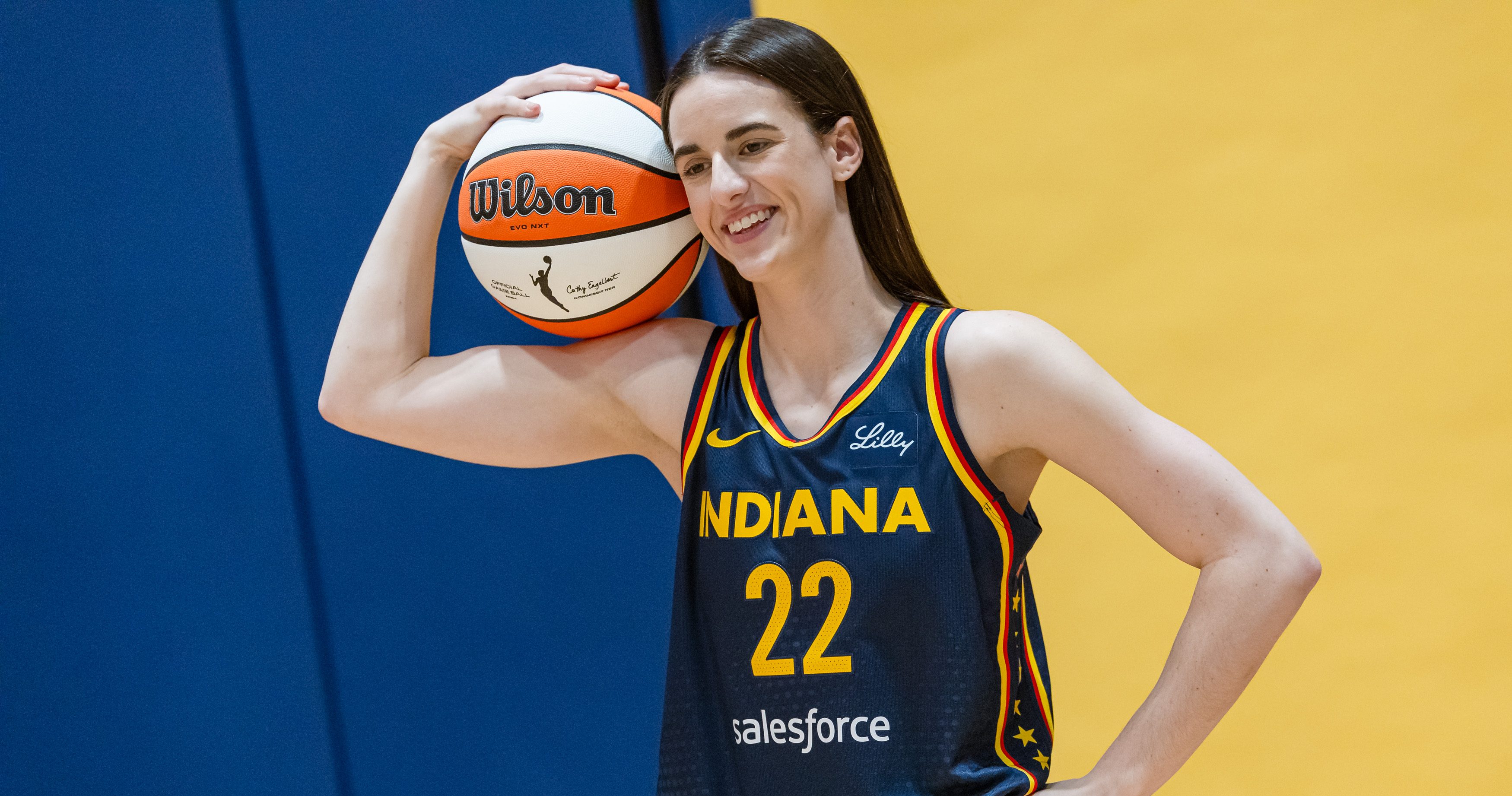
Less than a year since getting off the ground, the Professional Women’s Hockey League has staged its inaugural season with 72 games around North America televised or streamed and attendance records broken over and over, putting the sport in the spotlight like never before.
It could not be happening at a better time.
The PWHL’s launch finally brings together the best players in the world on a regular basis and beyond the annual world championships or Olympics every four years. And it has placed the game firmly on the map at a time of heightened interest in women’s sports, led by the Caitlin Clark effect in basketball and a quarter-century since Brandi Chastain and the U.S. soccer team rose to international prominence.
While it will still take time to catch up in a crowded landscape, the PWHL is off to a blazing beginning after decades of frustration, featuring fitful starts and stops, by putting it all together on the ice with a chance to capitalize on a growing appetite for elite women’s sports.
“We all wanted things to happen faster, and it felt really difficult and challenging at times,” Hall of Famer and PWHL senior VP of hockey operations Jayna Hefford told The Associated Press. “But now when you look back on it, you have to wonder if everything happened like it should have been and at the right time to allow us to see the success that we’ve seen to date.”
That success is still in its infancy, though the first four-plus months of the PWHL has raised expectations of how fast and how much it can grow beyond the current six-team structure based in Boston, New York, Minnesota, Toronto, Montreal and Ottawa. A total of 392,259 fans attended games during the regular season at venues that included various NHL rinks and highlighted by a women’s hockey record crowd of 21,105 turning out at the Canadiens’ Bell Centre for a Montreal-Toronto showdown last month.
Television broadcasts nationally in Canada and regionally in the U.S. markets have also attracted even more viewers to women’s hockey in following the same path of progress the WNBA and the various pro women’s soccer league incarnations previously enjoyed since the late 1990s and early 2000s.
“This has been in the works for quite a long time,” said Amy Scheer, the PWHL’s senior VP of business operations, who has also worked in the WNBA and NBA and for the NFL. “This has not happened overnight, and it continues to be a movement and it will have to continue to be a movement. There’s no time where we can take our foot off the pedal and feel complacent or feel comfortable. This is hard work every single day.”
As the puck drops on the playoffs this week, with an innovative format that allowed league-leading Toronto to pick its first-round opponent, there’s still plenty of work to be done.
Feeling out of the loop? We'll catch you up on the Chicago news you need to know. Sign up for the weekly> Chicago Catch-Up newsletter.
Internally, advisory board member Stan Kasten acknowledged, “We still have a long way to go till we are an economic success,” and an expert in women’s sports is skeptical of the long term based on hockey’s place behind football and other sports in the U.S., and until there are more teams and big-name stars to capture mainstream attention.
“You’ve got the kind of barrier of overcoming just the sort of marginalization of hockey in American culture and then on top of that added in this additional layer of the marginalization of women’s sports in American culture,” said Cheryl Cooky, professor of women’s gender and sexuality studies at Purdue University. “Adding those together, it creates this sort of double jeopardy for women’s hockey.”
Cooky pointed to Chastain, Clark and others becoming the face of her sport to people beyond the fanbase as something women’s hockey needs. American Hilary Knight and Canadian Marie-Philip Poulin are the biggest stars at the moment, including Knight making an appearance on “Saturday Night Live” in 2018. But there’s also the inherent challenge of playing in helmets with cages that basketball and soccer do not have to overcome in building a pop culture following off the ice, court or field.
But that process is ongoing, placing the emphasis on the next generation, led by Sarah Nurse, Caroline Harvey, Laila Edwards and others, of building a loyal following around the continent.
“These kinds of role models that show women that they can be fierce, serious athletes, I can’t think of anything better,” Canadian Ambassador to the U.S. Kirsten Hillman said. “The strength of the fan support speaks to the fact that there was something missing, that there was something that was needed."
Speaking steps away from Hillman at a PWHL watch party at the Canadian Embassy in Washington last month, Bauer VP of marketing Mary-Kay Messier called the inaugural season “a watershed moment” for hockey in general because of the growth opportunity of getting more girls and women involved.
“It’s a reflection of the passion of the people, and they’re demanding to see the games and they’re turning out in droves and breaking records is no longer a milestone — it’s a track record,” Messier said. “For brands that want to stay relevant, want to develop new audiences, you’ve got to get involved with girls and women’s sports because that’s a difference-maker.”
The PWHL has deals with companies running the gamut from equipment manufacturers like Bauer and CCM to Canadian Tire, Molson, Tim Hortons and Barbie. More agreements are coming soon, as is eventual expansion, though that will have to wait, as will increased salaries for players and other modifications.
“We tried to be careful and conservative so that when we finally got going, we had a chance to succeed and that’s the place we’re at now,” said Kasten, one of the people running the PWHL show for Los Angeles Dodgers owner Mark Walter and women’s tennis icon Billie Jean King.
Kasten said the league’s “manifest destiny” is competitions in Europe, and an influx of talent outside the U.S. and Canada is one reason to think, as Scheer does, that “there’s no limits” on what the PWHL can do.
“It’s great that you have different pathways,” said Lara Stalder, captain of Switzerland’s national team who credited countrywoman Alina Muller for carving a path for Europeans in the PWHL. “In the end, you need good pathways and good structures that we have more depth, that more and more girls play hockey.”



